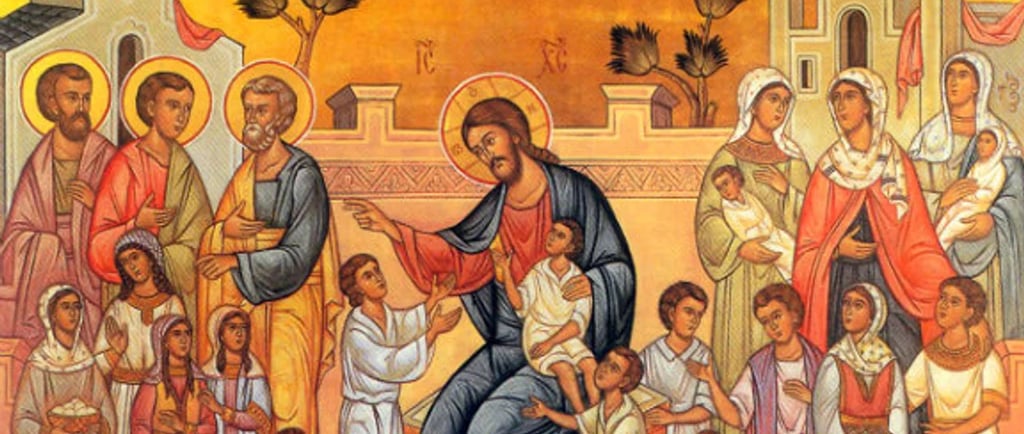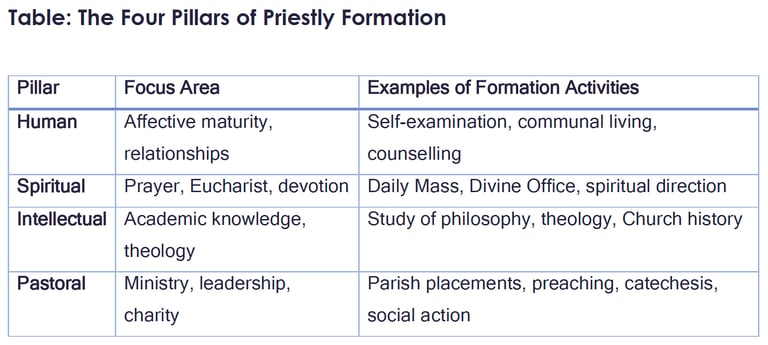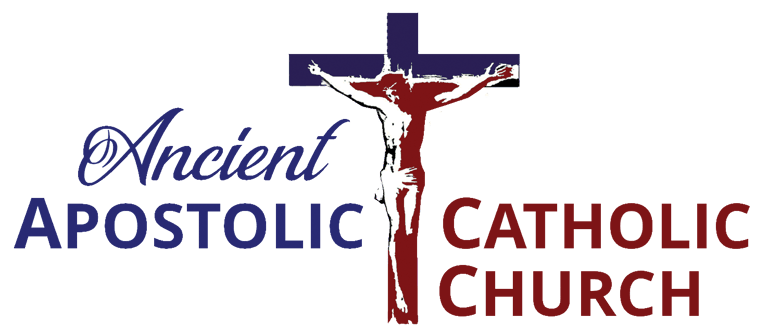Apostolic Ministry and Vocational Discernment in the Catholic Priesthood
The path of vocational discernment is one marked by awe, apprehension, perseverance, spiritual joy, and, at times, the agony of decision. Discernment is never walked alone; the Church walks with you. The voice that calls you is not found in thunder or earthquake, but in the gentle whisper of Christ.
PASTORAL LETTER


Apostolic Ministry: A Pastoral Reflection and Guidance for Those Discerning the Priesthood
Introduction: A Shepherd’s Greeting
My beloved brothers and sisters in Christ,
I write to you as a bishop, entrusted by Christ to serve as a successor to the apostles and shepherd of His flock. It is both an immense privilege and a profound responsibility to accompany you as you discern whether God is calling you to the priesthood. In this pastoral letter, I address you not as a distant stranger, but as a fellow pilgrim, a seeker yearning for Truth and the fullness of God’s purpose in our lives.
The path of vocation is one marked by awe, apprehension, perseverance, spiritual joy, and, at times, the agony of decision. Discernment is never walked alone; the Church walks with you. The voice that calls you is not found in thunder or earthquake, but in the gentle whisper of Christ, who said, “Follow Me.” As you contemplate responding to that call, it is vital to grasp the theological foundations, historical context, and living, pastoral realities of Catholic apostolic ministry. It is my hope that you will find here practical guidance, spiritual nourishment, and honest encouragement - not simply to make a decision, but to make it as a disciple, formed by the Gospel and the living tradition of our Church.
The Historical Foundations of Apostolic Ministry
The Mission of the Apostles
At the heart of all ministry lies the mission and example of the apostles. Jesus Christ, after His Resurrection and before His Ascension, commissioned the Twelve: “Go therefore and make disciples of all nations, baptising them in the name of the Father and of the Son and of the Holy Spirit, and teaching them to obey everything that I have commanded you. And remember, I am with you always, to the end of the age.” (Matthew 28:19-20). The apostles, personally chosen and sent by the Lord, were the first ministers of the Church, charged with preserving the memory, teaching, and sacramental life of Jesus.
The apostolic age was a time of tremendous dynamism and tension. The apostles bore witness to Christ’s resurrection, proclaimed the Word, established communities, and, through the laying on of hands, commissioned others for ministry (Acts 6:6; 1 Tim 4:14; 2 Tim 1:6). Patterns of leadership began to emerge: bishops (episkopoi), presbyters, and deacons each played vital roles in the nascent Church. The events recorded in the New Testament, particularly the Acts of the Apostles and the Pauline Epistles, provide ample evidence for both the diversity and continuity of ministry.
The Emergence of Holy Orders
While every Christian shares in Christ’s priesthood by baptism (the “common priesthood,” see 1 Peter 2:9), the need soon became clear for a distinct, ordained leadership. The imagery of “laying on of hands” is not a small gesture; it is both a sign and a reality of sacramental transmission - a bond that stretches in unbroken succession, one bishop ordaining another, back to the apostles themselves.
As the Church expanded, local communities required shepherds who would teach, sanctify, and govern - functions carried out by bishops, priests, and deacons. Early Church Fathers, such as Ignatius of Antioch and Irenaeus of Lyons, affirmed the crucial role of apostolic succession for the life and unity of the Church. By the second century, the threefold structure of ministry (episkopos, presbyteros, diakonos) was established as the backbone of the ecclesial community.
The Theology of Apostolic Succession
Apostolic Succession: A Living Tradition
Apostolic succession is not, as some critics allege, merely a matter of historical curiosity or institutional continuity. It is profoundly theological - a channel through which Christ’s own authority, truth, and sanctifying grace flow into each generation of the Church. The International Theological Commission defines apostolic succession as the “specific and essential function” assembling Scripture, Tradition, and the teaching office (Magisterium) in a living dynamic.
Succession is therefore not purely historical; it is sacramental and spiritual. To be ordained within the apostolic line is to enter not only a particular ministry but to bear a unique responsibility: to teach with the mind of Christ and His Church, to sanctify by sacrament, and to govern in humble service. The bishop, above all, is not only leader but sign - “the visible source and foundation of unity” for the local Church.
The Sacrament of Holy Orders
The priesthood and episcopate are conferred by the sacrament of Holy Orders, through the laying on of hands and anointing with sacred chrism. This is not a human promotion, but a divine consecration: “And one does not presume to take this honour, but takes it only when called by God, just as Aaron was” (Hebrews 5:4). The sacrament imparts an indelible character, configuring the ordained as alter Christus – an icon of the Good Shepherd, a minister “in the person of Christ the Head” (in persona Christi capitis).
The Catechism of the Catholic Church (CCC) teaches that there are three degrees of Holy Orders: bishop (episcopate, the fullness of the sacrament), priest (presbyterate, sharer in the bishop’s ministry), and deacon (diaconate, ministry of service). Each is essential to the structure and mission of the Church. The bishop’s unique faculty to ordain (including the ordination of new bishops, priests, and deacons) guarantees the Church’s apostolic continuity.
The Role and Identity of the Bishop
The Bishop as Successor to the Apostles
Every bishop today stands in direct, sacramental succession to the original apostles - a reality confirmed by Church doctrine and affirmed in the ancient liturgies. The charism entrusted to the bishop is both pastoral and magisterial. He is to teach sound doctrine, sanctify the faithful through the sacraments, and govern with pastoral wisdom.
In this, the bishop serves as a “visible sign of unity” within his diocese and as a member of the global college of bishops, in communion with the Pope, the successor of Peter. This collegiality reflects the Trinitarian nature of the Church - many persons, one heart in Christ.
The Threefold Mission: Teaching, Sanctifying, Governing
Teaching: The bishop is the chief catechist, responsible for ensuring that the fullness of the apostolic faith is proclaimed in his diocese. This includes vigilance against doctrinal error, fostering theological education, and articulating the Gospel in the face of contemporary confusion and moral ambiguity.
Sanctifying: As the chief liturgist, the bishop ensures the worthy celebration of the Eucharist - the “source and summit” of Christian life. He ordains priests and deacons, imparts Confirmation, and oversees the sacramental life of his people. Through prayer, fasting, and sacramental ministry, he becomes a true “father in Christ” to his flock.
Governing: The bishop leads not as an autocrat, but as a servant - shepherd. He is to know his people, accompany them in their struggles, and foster communion. His decisions must balance justice with mercy and be guided by prudence, humility, and fidelity to the Gospel.
The bishop’s spiritual life must be rooted in daily prayer, attentive listening to the Spirit, and the willingness to bear, as St John Chrysostom said, “the weight of souls” entrusted to his care. Above all, he must be a model - imperfect, but striving for holiness - so that his flock may be holy as well.
Theological and Pastoral Dimensions of Apostolic Ministry
Priestly Ministry: Participation in Christ’s Priesthood
The priesthood is not a human invention, nor merely a functional role. It is a sacramental participation in the priesthood of Christ Himself, ordered for the service of the People of God. While by baptism all Christians share in the “common priesthood,” the ordained priest acts in persona Christi, making present the once-for-all sacrifice of Calvary, especially in the Eucharist.
The ministerial priesthood is at the service of the common priesthood, called to unfold baptismal grace in all Christians. The priest is to proclaim the Gospel, administer the sacraments (especially the Eucharist and Reconciliation), foster charity, and shepherd the community of faith. His authority, derived from Christ through the bishop, is always for the good of the People whom he serves.
The Call to Spiritual Fatherhood and Self-Gift
To be a priest is, above all, to become a father in the order of grace: to love with Christ’s Heart, to lay down one’s life for the faith of the people, to forgive, teach, and lead as a shepherd. In this, the priest becomes a witness to the new creation inaugurated by the Resurrection.
The Eucharist: Source and Summit
It is in the celebration of the Eucharist that the priest fulfils his identity most fully. Here, he renders present the once-and-for-all sacrifice of Christ, unites the prayers and offerings of the People with Christ’s own, and distributes the Bread of Life. All pastoral ministry flows from and returns to this mystery.
The Path of Discernment: Stages and Guidance
The Mystery of Discernment
Discerning a vocation to the priesthood is not a moment but a process - a journey that unfolds under the gentle guidance of the Holy Spirit. There is no formula or guarantee; each path is unique, reflecting the freedom of God’s action and the distinctiveness of each person. What is common is the need for prayer, community, wise guidance, and honest self-examination.
The Church’s wisdom recognises seven broad stages of discernment:
Initial Call: A mysterious attraction to the priesthood often experienced in youth, perhaps during Mass, in prayer, or through the invitation of others.
Latency: The idea of priesthood arises intermittently, accompanied by periods of questioning or hesitation.
Assessment: A more sustained attention leads to spiritual growth and deeper prayer. Challenges and fears are faced honestly, often with the help of a spiritual director.
Discernment Shift: A growing openness to surrender fully to God’s will. This is marked by peace, even amid uncertainty.
Seminary Discernment: Formal entry into formation under the bishop’s guidance. Here, structured prayer, academic study, and practical pastoral experience are all part of further discernment.
Consistent Peace: Self-knowledge and peace mature. The candidate grows in faith, hope, and readiness for priestly ministry.
Moral Certitude: The penultimate stage, where the individual, the Church, and the bishop together come to moral certitude-never absolute certainty, but every indication that this is God’s will.
Throughout these stages, key discernment practices include daily prayer, regular Mass and Eucharistic adoration, reception of the sacraments, participation in parish and service life, spiritual direction, and openness with vocation directors or trusted clergy.
Criteria for Vocational Disposition
Discernment is not only “between me and God.” It is always an ecclesial act - inviting the wisdom and judgement of the bishop, spiritual directors, seminary staff, and the wider Christian community. Certain characteristics are particularly sought and nurtured:
Spiritual depth, evidenced by a life of prayer and sacramental participation
Emotional maturity and resilience
Genuine capacity for pastoral care and collaboration
Sound intellectual ability, openness to learning
Openness to growth, correction, and formation.
Human, Spiritual, Intellectual, and Pastoral Formation
Human Formation: Becoming Bridges of Christ
Pope Saint John Paul II highlighted that the human personality of the priest must be a “bridge and not an obstacle” in meeting Christ. Human formation is the foundation for all other forms of formation. It seeks to cultivate affective maturity, self-knowledge, empathy, relational skills, and a balanced, integrated life. This enables priests to live fruitfully, manage stress, and serve as authentic, approachable leaders.
Practical steps in human formation include regular self-examination, psychological counselling as needed, communal living (which tests patience, humility, and collaboration), and growth in virtues such as prudence, fortitude, temperance, and justice. Seminarians are encouraged to develop healthy friendships, habits of exercise, rest, and service, as well as constructive outlets beyond academic study.
Spiritual Formation: Rooted in Christ
Spiritual formation is the core of priestly identity. The seminarian must be a man of prayer, formed by the Eucharist, regular confession, daily meditation, love of the Word, and devotion to Our Lady. The Liturgy of the Hours - the daily prayer of the Church - shapes his interior life and future ministry.
The heart of this formation is an ever-deepening union with Christ. This is nourished by the sacraments, personal and communal prayer, spiritual direction, annual retreats, and cultivating silence and solitude which allow the voice of God to be heard. Seminarians must “learn to pray” not only for themselves but so they may become “teachers of prayer” for others.
Intellectual Formation: Seeking the Truth
The priest is called to be a herald of the Gospel, and for this, solid intellectual formation is indispensable. Seminary education includes philosophy (to teach reasoning, clarity of thought, and understanding of human nature) and theology (to delve into the mysteries of God, the sacraments, moral life, and pastoral practice).
Intellectual formation is not about accumulating knowledge for its own sake. Rather, it aims at forming a mind and heart capable of preaching, teaching, evangelising, and engaging with the challenges of a complex and fast-changing world. Faithfulness to the Magisterium, ongoing academic engagement, and a spirit of humble inquiry are all essential.
Pastoral Formation: The School of Pastoral Charity
The final pillar is formation in pastoral charity - preparing future priests to serve in the concrete circumstances of parish, school, hospital, and society. This takes shape through pastoral placements, practical assignments, and hands-on ministry with diverse communities.
Key pastoral competencies include listening, compassionate care, leadership, collaboration, evangelisation, and commitment to social justice. Seminarians learn to shepherd the flock by walking with families, the sick, the poor, the young and old, the engaged and the lost. Above all, they learn that to govern is to serve, and to sanctify is to serve as Christ did.


Each pillar, as outlined above, supports and is integrated with the others. Growth in one area reinforces growth in the others, and all are necessary to form a mature, credible, and effective priest.
Practical Guidance for Seminary Life and Ongoing Formation
Entering and Thriving in Seminary
Seminary is a challenging and unique environment. It is both a place for serious academic study and for profound personal and spiritual transformation. Some practical advice for seminarians includes:
Prayer, Prayer, Prayer: Make prayer the foundation of every day. Without it, all formation remains hollow.
Remain Humble and Open to Growth: Knowledge, while valuable, can breed pride. Seminary offers continual correction - embrace it with a spirit of humility.
Balance Is Key: Develop good habits in time management, physical health, community life, and rest. Overwork or neglect in any area leads to imbalance.
Cultivate Friendships: Seminary is not a solitary journey. Friendships with peers and relationships with mentors sustain you through difficulties.
Form a Rule of Life: Structure your days around regular routines of prayer, study, service, exercise, and rest.
Seek Support in Hardship: Do not be afraid to ask for help - whether from formators, spiritual directors, or peers. Formation is communal, not individual.
Use Digital and Financial Resources Wisely: Be prudent with technology and finances; do not let these become distractions or sources of anxiety.
Challenges in Discernment and Formation
Declining Religious Participation and Secularism
A significant contemporary challenge is the decline of religious belief and practice in many cultures. The priestly vocation stands sharply at odds with the individualism and secularism of the age. Yet, as recent studies and practical experience show, a vibrant spirituality centred on Eucharistic adoration, regular prayer, and community life continues to attract and sustain vocations.
Scandal and Loss of Trust
Recent decades have witnessed grievous scandals in the Church. The pain of these events, and the real anger they provoke, cannot be glossed over. The Church’s response - ensuring the highest standards for safeguarding and formation, transparency, and accountability - must continue. For those discerning the priesthood, the call is to embrace holiness, integrity, and humble service that can begin to rebuild trust.
Human Weakness and Loneliness
Priests are not angels; they are men, vulnerable to the temptations and frailties of any human being. The process of formation now emphasises psychological maturity, self-care, and the cultivation of a healthy emotional life. The wise priest learns to transform periods of loneliness into opportunities for deeper union with Christ, and to seek help when needed rather than suffer in silence.
Work-Life Balance and Burnout
The demands on the modern priest - spiritual, emotional, administrative - are immense. Setting boundaries, cultivating support networks, and nurturing one’s spiritual and human health are indispensable for long-term fruitful ministry.
The Ongoing Nature of Priesthood: The Call to Lifelong Formation
Priestly formation does not end with ordination. The Church urges all priests to commit themselves to ongoing spiritual direction, annual retreats, continuing theological education, and peer support. Lifelong formation not only enriches the priest’s ministry, but renews his heart, enabling him to face new challenges with hope.
The priest must continually return to the heart of his vocation: intimacy with Christ, loving service to the Church, and fidelity to his promises. As Pope Benedict XVI once said, “The priest is not a mere functionary. He is a disciple who walks with Christ, who comes to know Christ ever more and thus becomes his friend. Only in this way can he truly bring Christ to others.”
Final Words: Encouragement and Wisdom from a Bishop’s Heart
To those discerning a vocation to the priesthood, I offer these counsels:
Let Your Discernment Be Rooted First in Being, Not Doing: Ask, “Who is God calling me to become?” rather than “What am I meant to do?” Holiness, friendship with Christ, comes before ministry.
Trust God’s Gentle Guidance: God does not reveal the whole journey at once. Take the next faithful step. Accept help from those God puts in your path.
Give Yourself Generously: The world is in need of authentic witnesses; priests who are joyful, prayerful, and sacrificial.
Persevere in Hope: Every age brings new challenges, but also new graces. The fires of faith are never wholly extinguished. Where there is genuine prayer, community, and the sacraments, vocations flourish.
Seek Support and Prayer: Do not hesitate to ask priests, family, or parishioners for prayer. Their care, and your openness, will nurture and sustain your vocation.
Brothers in Christ, the harvest is plentiful but the labourers are few. Christ calls men by name to share in His priesthood, to stand with Him at the altar and to carry His love into the world’s shadows. If you feel that gentle tug in your heart, know that it is the Spirit at work, urging you to step forward with courage and trust.
Do not let uncertainty or hesitation cloud your “yes.” Come, speak with our priests or vocation director - no question is too small, no dream too bold for the Church to hold alongside you. In those conversations, you will discover companions for prayer, mentors for formation, and a community ready to support every stage of your journey.
Today, I invite you to carve out a moment of quiet this week. Sit before the Blessed Sacrament and ask, “Lord, is this the path you have for me?” Then, whatever your answer, act on it in faith - make that phone call, write that email, trust that God’s grace will carry you. The future of our Church depends on men who dare to answer His call.
Priesthood is not a career; it is a sacrificial and radiant sharing in the pastoral heart of Christ. If you feel His call - “Come, follow me” - do not be afraid. Be open to His will, and trust that He who calls will also equip and sustain you.
May Mary, Mother of Priests, and all the saints support you with their prayers. And may you have the courage to say, with the Prophet Isaiah, “Here am I; send me!” (Isaiah 6:8).
Subscribe Today
The Pilgrim Chronicle's is published as a quarterly newsletter full of articles, news and personal reflections. Complete the form below to be included in our subscriber's emails.
Ancient Apostolic Catholic Church
Embracing faith, inclusion, and compassionate service together.
ST THOMAS AQUINAS SEMINARY
© 2025. All rights reserved
QUICK LINKS


